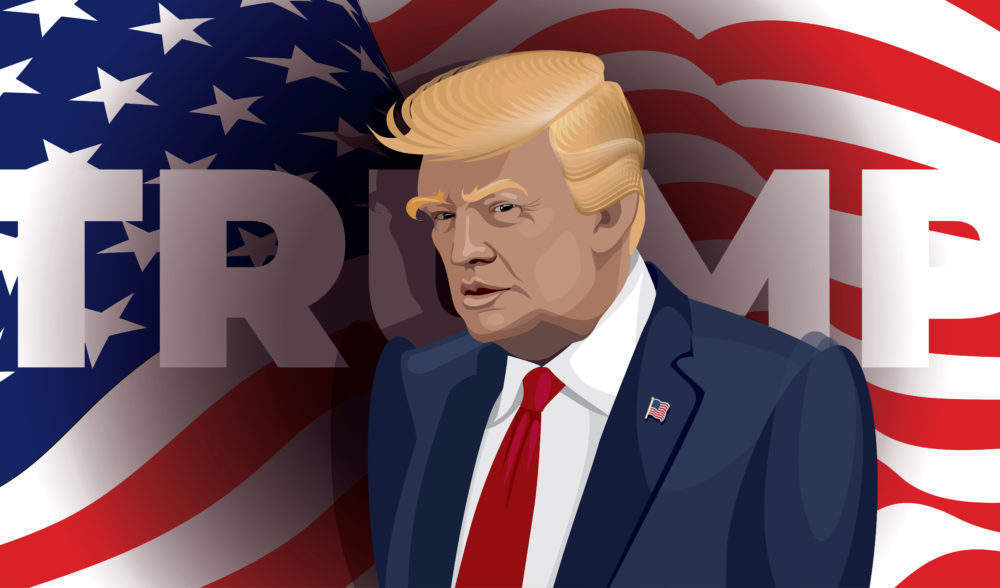
Artificial intelligence (AI) has been one of the hottest spaces in the technology industry for over a decade, but even Big Tech’s coolest child can’t escape the grips of an uncertain economic climate. The vigour of investment into the space that had been building for over a decade has backed off considerably this past year – but still remains a thriving and forward-thinking industry.
AI is everywhere in our everyday lives; from facial recognition software embedded in phones to the social media posts we are shown, there is no escaping it. Many people think of the technology sector when AI is mentioned, but businesses in every industry have become ubiquitous with it.
Chatbots and virtual assistants, for example, can be found in almost every sector and were made all the more important during the Covid-19 pandemic when face-to-face interaction was kept to a minimum.
It’s no surprise then that the market size is pretty huge for the technology that has been embedded into almost everything.
Forecasts from research firm GlobalData suggest that the market for AI platforms will reach a whopping $52bn in 2024, up from $29bn in 2019.
Investment in AI plummeted in 2022
The number of AI deals has been growing pretty steadily for the past decade. Back in 2012, the industry enjoued around $1.3bn worth of investment in a total of 191 deals carried out, according to figures from GlobalData.
How well do you really know your competitors?
Access the most comprehensive Company Profiles on the market, powered by GlobalData. Save hours of research. Gain competitive edge.

Thank you!
Your download email will arrive shortly
Not ready to buy yet? Download a free sample
We are confident about the unique quality of our Company Profiles. However, we want you to make the most beneficial decision for your business, so we offer a free sample that you can download by submitting the below form
By GlobalDataThose figures skyrocketed in 2014, reaching a total of $28bn with 768 deals. Investment then cooled off in 2015 to a total of $10bn with 1,067 deals.
Since 2015, investment in AI continued to rise steadily until it peaked in 2021 at $121bn with a total of 3,672 deals.
However, the total amount of investment in the sector plummeted in 2022, totalling at $67bn with 3,187 capital raises.
Despite the fall of investment this year, AI is still a powerhouse in the technology space and businesses are investing heavily to stay ahead of the curve. This is evident when you look across the 10 biggest AI deals raised in November.
Astera Labs secures $150m in Series D financing
The biggest AI deal of November was raised by Astrea Labs, a California-based provider of data and memory connectivity solutions. It bagged $150m last month, bringing its valuation to a whopping $3.2bn. The funding was part of a Series D round led by Fidelity Management and Research.
It comes after the company enjoyed a Series C funding round, again led by Fidelity, which valued the company at around $950m back in September 2021.
The company, which works with major tech players like Intel and Amazon, aims to remove performance bottlenecks in compute-intensive workloads, like AI and machine learning.
“This latest funding round is a testament that we are not only invested in the right growth markets such as cloud, artificial intelligence/machine learning and hyperscale infrastructure, but that we are also able to consistently execute and deliver breakthrough connectivity products that are critical to our customers and partners,” said CEO Jitendra Mohan in a release.
Astrea Labs will be using the funds to expand its product lines, increase its workforce, and open two new research and design centres in both Vancouver and Toronto.
“Astera Labs continues to surpass every milestone for a technology start-up, and we are now deep into the next stage of evolution for our company as we accelerate growth,” added Mohan.
Beijing Hongmian Xiaobing Technology (Xiaoice Company) secures $139.06m in venture funding
Another huge AI deal in November was Chinese chatbot Xiaolce, an AI framework introduced by Microsoft Research Asia in 2014. The AI venture topped up its coffers with $139.06m last month.
Its chatbot was trained using collected user data from Microsoft’s Bing search engine. The company claims it is able to work with a number of different chat platforms. Since its release it has become a huge hit in China’s social media space.
The company will be using the funds to accelerate its research and development of its “AI Being” technology, as well as increase its “digital employees.”
Xiaolce coined the term “AI Being” back in 2019 in reference to digital employees designed using AI to perform human communication and related tasks, Caixin Global reported.
Microsoft spun out Xiaolce into a standalone company in 2020 to continue serving its existing users.
Locus robotics secures $117m in Series F financing
The third largest AI deal in November was made by Locus Robotics, a company specialising in autonomous mobile robots for distribution warehouses. It bagged a $117m Series F funding round last month.
Goldman Saches Asset Management and G2 Venture Partners led the raise, which brought Locus Robotics' valuation to almost $2bn.
It comes after the company raised $50m last September, following a previous $150m in Series E in February 2021.
Locus Robotics promises to provide solutions that can be easily integrated into existing warehouses without hassle.
“Locus is clearly the winner in the flexible warehouse robotics space, and the consistency with which the Locus team executes has been extraordinary,” G2’s Zach Barasz says in a release.
“We are thrilled to be investors in Locus Robotics and to partner with the leading warehouse execution company in making global supply chains faster, more cost-effective, and more resilient and sustainable.”
The latest funding round marks Locus Robotics’ next stage of growth, as they bring in new investors with experience in both public and private markets.
Ordergroove secures $100m from Primus Capital Partners
OrderGroove, a US-based provider of software as a service-based subscription and membership commerce platform for brands, received $100m from backers in November.
The funding comes from private equity firm Primus Capital Partners and will be used to further invest in subscription technology, as well as further develop the company’s frictionless shopping experiences.
“This vote of confidence by Primus underscores our leadership position in the category,” said Greg Alvo, founder and CEO of Ordergroove, in a statement.
“Subscriptions are hard and Ordergroove makes it easy and delightful for both Fortune 2000 companies and emerging brands to become subscription-first.
“This partnership with Primus will allow us to fuel our rapid growth and continue to scale our investments in product and innovation.”
Ordergroove, opened by Greg Alvo in 2012, enables subscription and membership experiences for the world’s largest retailers, including L’Oreal, The Honest Company and more.
The company aims to help merchants provide frictionless subscription experiences that grows recurring revenue and boost customer’s lifetime value, TFN reported.
Advanced Navigation raises $85m in Series B funding round
Advanced Navigation, a developer of AI robotics and navigation technology, received $86m in Series B funding in November. Global investment firm KKR led the raise.
The funding round also includes participation from new investors like venture firm AI Capital, as well as existing investors including Main Sequence, Malcolm Turnbull AC and Our Innovation Fund.
The Australia-based company aims to create robotic and navigation solutions by using AI neural networks and deep learning algorithms.
Advanced Navigation’s products are sold into commercial and defense industries for applications used on land, air and even space.
According to the company, the funding will be used to accelerate R&D programs focusing on robotic, photonic and quantum sensing solutions.
“We look forward to this next phase of growth as we continue to be a driving force in the autonomy revolution,” Xavier Orr, CEO and co-founder of Advanced Navigation, said.
“KKR has significant experience investing in emerging technologies, we are thrilled to have them lead our Series B funding round and work alongside our team to advance our product and technology innovation and development.
“Our technologies will continue to safely and reliably guide autonomous vehicles across hazardous environments.”
Deepgram secures additional $47m in Series B financing
Deepgram, a US-based provider of an AI and deep learning enabled platform for speech recognition, received $47m in Series B funding in November.
The funding round was led by Madrona Venture Group with extra participation from Citi Ventures and Alkeon.
It completes the company’s Series B funding round, which totaled at $72m, the largest ever known Series B round in the automatic speech recognition category, according to Martech Series.
“Understanding speech at scale starts with accurate transcriptions, but it doesn’t stop there,” Scott Stephenson, CEO of Deepgram, said. “At Deepgram, we view accurate transcription as an increasingly solved problem for many of the more than 100 languages we work with.
“That’s the groundwork upon which we’re building the future of speech understanding: to give our customers insight into not just what was said, but how it was said, which can result in an actionable understanding of why it was said.”
The company has ambitious plans for future AI voice understanding – moving away from natural language processing which uses a text-based approach and focusing on audio-first foundation. This incorporates nuances of intonation and inflection into its analysis and speaker labeling.
“Deepgram enables any developer at any company to unlock the value of voice by delivering new speech intelligence capabilities on top of already world-class transcriptions, all through a straightforward developer experience and at an affordable price,” said Madrona managing director Karan Mehandru.
“We’re excited by Deepgram’s traction over the past 12 months and are thrilled to back the team and technology behind the voice revolution.”
Soft Robotics secures $26m in Series C funding
Soft Robotics Inc (SRI), a technology company that designs and builds automated picking solutions using soft robotic grippers and AI software, received $26m in an initial Series C closing.
The funding will be used to expand its commercial deployment of its mGripAI™, described as an easy-to-integrate automation package that combines ultra-fast 3D vision and AI technologies with soft grasping industrial robots.
The company claims its industrial robots has the hand-eye coordination of humans, with a combination of robotic “hands, eyes and brains.”
The series C funding was led by Tyson Ventures, the venture capital arm of Tyson Foods, and also brings new investors Marel and Johnsonville into SRI’s investor syndicate.
"We're delighted that some of the world's leaders in the food production and automation markets have decided to join existing investors in supporting SRI's continuing growth journey," said Jeff Beck, CEO of Soft Robotics.
"SRI's technologies are increasingly crucial to enabling and scaling efficient and safe production of several food categories. This round of growth capital strengthens SRI's ability to rapidly develop, deploy and support those technologies."
PhotoRoom secures $19m in Series A funding
Another interesting AI deal from November was the one raised by PhotoRoom. The France-based provider of global photo editing platform PhotoRoom secured $19m in Series A funding last month.
The funding was led by Balderton Capital, with participation from Adjacent and Angels from Facebook Technologies, Disney Plus and Hugging Face Inc.
PhotoRoom has been downloaded over 40 million times and allows users to remove the background behind objects. This has been popular with ecommerce vendors and small businesses who want to remove the background behind objects they’re going to sell to look more professional.
While PhotoRoom isn’t the only app that remove photo backgrounds, the company focuses on the niche of small businesses looking to resell objects on eBay or Depop, TechCrunch reported.
The company uses deep learning to identify different objects and elements on a photo – separating the image into multiple layers to allow users to easily delete or edit the background.
PhotoRoom will be using the funds to continue to develop its AI software, improve generative AI features and continue to hire talent across Europe.
Terzo Technologies secures $16m in Series A funding
Terzo Technologies, a provider of contract intelligence software that uses AI to extract financial data in contracts to help organisations optimise their revenue, received $16m in Series A funding in November.
The funding round was led by Align Ventures with participation from TYH Ventures, Engage Ventures, Human Capital and other institutional investors.
“Terzo is tackling a $6tn problem that almost every organisation faces," Neel Chary, partner at Align Ventures sai. “Most companies do not have an effective contract management system in place which leads to inefficiencies like overspend.”
Terzo claims it is filling a huge gap in the sector as other companies like Oracle do not use AI or automation around contract data.
The company is going to use the funds to grow its sale and marketing team, as well as expand its AI and machine learning capabilities to make the platform more automated and integrated.
Abyss Solutions secures over $10m in venture funding
The last AI deal on the list. Abyss Solutions, an Australia-based robotics company that offers inspection and management of underwater assets, secured over $10m in venture funding from AirTree Ventures.
The company combines machine learning and robotics to deliver data-driven engineering assessment of critical infrastructure assets. These assessments would usually be carried out by large teams of people and take years to complete.
Abyss Solutions plans to use the funds to carry on expanding its autonomous critical infrastructure asset inspection technology, according to Financial Review.
“We felt like it was a good time to stick to who we know, and AirTree were extremely keen on backing us up,” CEO Nasir Ahsan said. “It took AirTree only two to three weeks to pull the whole thing together.
“They had been heavily involved in the business and where it was going. They’d seen the margins and, for me, I’d prefer to stick with Elicia [McDonald], an AirTree partner, than bring someone else on board.”
GlobalData is the parent company of Verdict and its sister publications.







